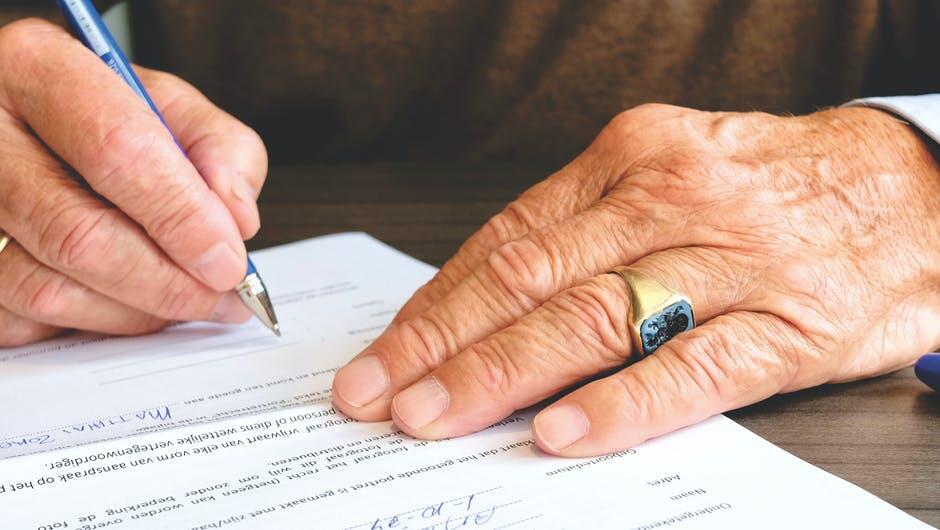Imagine inheriting a beautiful beach house in sunny Florida, only to find yourself tangled in legal complications. You may ask yourself, why? It’s because probate, a critical legal process following a loved one’s passing, wasn’t initiated on time. This guide aims to ensure you never find yourself in such a predicament. Understanding Florida’s probate laws and the importance of hiring probate lawyers are essential in navigating these challenging times.
Let’s embark on this informative journey together.
The Essence of Probate in Florida
Probate is the legal process that plays a pivotal role in managing and distributing the estate of a person who has passed away. This process, essential in Florida and other states, involves several critical steps.
Validating the Will
The first is validating the will of the deceased if one exists. This validation is crucial as it confirms the document’s authenticity and the deceased’s intentions.
Paying Off Debts
Following this, the process involves paying off any debts the estate owes. These debts may range from personal loans to credit card bills and even outstanding taxes.
Allocating Assets
Finally, the remaining assets are allocated to the beneficiaries as stipulated in the will or, in the absence of a will, per the state’s laws.
Timeline For Filing Probate in Florida
The will must be filed in Florida within ten days of the person’s death. Submit a petition to begin the probate proceedings. If there’s no will, initiate the probate process immediately following death.
These steps are key in ensuring a timely and efficient probate process, aligning with Florida’s legal framework that supports prompt action in probate matters.
For instance, the longer an estate remains unsettled, the higher the risk of legal disputes among potential heirs or beneficiaries.
Also, estates that are not probated may incur additional expenses, which can diminish the value of the assets that eventually reach the beneficiaries. While Florida law is accommodating, it favors prompt action in probate matters.
Why Speed Matters in Probate
The rationale behind acting fast in probate matters is multifaceted. It encompasses both legal and emotional aspects.
Safeguarding Estate Assets
Quick action helps in safeguarding the estate’s assets. This protection is crucial as it prevents the dissipation or mismanagement of the estate’s resources.
Addressing Debts and Taxes
Addressing debts and tax obligations is a critical aspect of probate. Timely payment of debts and taxes can prevent penalties and additional interest charges.
Easing Beneficiary Concerns
Beneficiaries are eager to receive their inheritance. Delays in the probate process can cause undue stress and uncertainty for them.
Smooth Transition of Assets
By acting promptly, executors can facilitate a smoother, faster transition of assets. This aligns with the wishes of the deceased and the expectations of the beneficiaries.
Understanding the Role of Probate Lawyers in Florida
What is a probate lawyer? A probate lawyer, or probate attorney, is an expert in estate law.
They guide executors and beneficiaries through the probate process. Their knowledge of Florida probate laws is indispensable.
In Florida, the role of probate lawyers is integral to this entire process. These legal professionals ensure that each step complies with Florida’s legal statutes. Thereby, this safeguards the interests of all parties involved.
The Need For a Probate Lawyer
Probate can be complex, especially with larger estates or when disputes arise. A probate lawyer ensures the following:
- Legal compliance
- Offers advice
- Represents you in court if needed
Hiring a Probate Lawyer: When and Why?
It’s wise to hire a probate lawyer early. They can help with the following:
- Filing documents
- Understanding tax implications
- Resolving conflicts
Hiring a probate lawyer reduces stress and ensures a smoother process.
The Probate Process: Step By Step
The probate process begins with filing for probate, typically undertaken by a probate lawyer. This initial step involves submitting the deceased’s will, if available, along with a petition for probate to the probate court.
This petition requests the court to start the probate proceedings officially. It’s a crucial step as it sets the entire process in motion, laying the foundation for the following tasks.
1. Court Appointments: Selecting the Executor or Personal Representative
Once probate is filed, the first crucial step is the court’s appointment of an executor or personal representative. This appointment is based on the directives in the will or, if no will exists, according to Florida’s succession laws.
The executor oversees the probate process, which includes managing the estate’s assets, paying debts, and eventually distributing the inheritance to the beneficiaries.
2. Inventory of Estate: Cataloging Assets
The executor’s key responsibility is compiling a comprehensive inventory of the deceased’s estate. This inventory includes all assets such as real estate, bank accounts, investments, personal belongings, and more.
Accurate valuation of these assets is essential, as it affects both debt settlement and asset distribution.
3. Paying Debts and Taxes: Settling Financial Obligations
Before any distribution of assets can occur, all outstanding debts and taxes of the estate must be cleared. This stage involves paying off creditors and settling any tax liabilities.
It’s a critical phase in probate, guaranteeing all legal and financial obligations are met before distributing the estate’s assets to beneficiaries.
4. Distributing Assets: The Final Stage
The final step in the probate process is distributing the assets to the rightful beneficiaries. This distribution is done according to the directives in the will or, in the absence of a will, per Florida state laws.
This stage marks the conclusion of the probate process, with the executor ensuring that each beneficiary receives their due inheritance as intended by the deceased or as dictated by law.
Take the Right Step With a Probate Lawyer
Handling probate in Florida requires a careful balance of prompt action and legal knowledge. A probate lawyer is your ally in navigating this complex process. They ensure compliance with Florida probate laws and work towards the best possible outcome for all involved.
If you’re facing the probate process in Florida, don’t go it alone. Boyer Law Firm offers experienced probate lawyers ready to guide you every step of the way.
Contact Boyer Law Firm today for a detailed case evaluation and legal assistance. Remember, timely action is critical in probate matters, and professional guidance makes all the difference.





